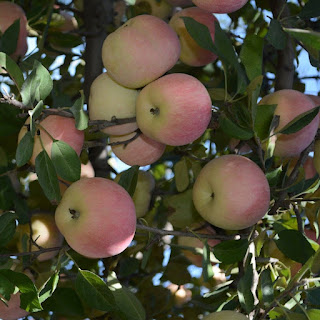Common Grapevine(Angoor)
Common Grapevine a Species of Grapevines
Common Name
Angoor
Grapes
Botanical Name
Vitis vinifera
Information.
Common grape vine (Vitis vinifera) is a woody, fruit-bearing vine with a very long and vivid history of cultivation for culinary, recreational, and ritualistic purposes - most notably in winemaking. The earliest known evidence of domesticated wine grapes has been identified in Georgia, and carbon dating traces its domestic origins all the way back to 6000 BC. In addition to wine, the fruit of the common grape vine is eaten in the form of grapes, raisins, and currants.
Tips from Garden Coaches
Although an extremely beautiful and useful plant to have in any type of garden, common grape vine requires quite a specific level of care and protection, especially in colder regions.
Attract Birds
Common grape vine produce the favorite fruit of many birds. These vines sprout clusters of little green flowers. Their fragrant scent attracts many insects, which naturally attract insectivorous birds, especially wrens. By the end of summer, fruits start to appear on the vine. As they change color and get larger, birds eat the sweet fruits. It's a good idea to try and attract wrens to keep other birds away from your grapes. Wrens eat crop-destroying insects and ignore the fruit, and they are also territorial, so they'll keep other birds from attacking the fruits, too. Other birds attracted to common grape vine include the American robin, Baltimore oriole, cedar waxwing, downy woodpecker, eastern bluebird, gray catbird, northern cardinal, northern flicker, northern mockingbird, pileated woodpecker, red-bellied woodpecker, red-eyed vireo, scarlet tanager, towhee, and veery.
Name Story
Wine grape
The word, grape is originated from the Old French, grappe or crape which means a cluster of fruit or flowers or a bunch of grapes. In 1996 after the discovery of 7,000-year-old wine storage in northern Iran, the vintage history of grapes dates back to the Neolithic Age. Hence, it is called the wine grape.
Interesting Facts
It takes three hours to build an oak barrel, four to five months for common grape vines to ripen, decades to brew a good bottle of wine, and only a second for wine to enter the esophagus from your lips and tongue. This very second represents years of history in the making.
Symbolism
Tolerance, charity, wealth, abundance, the love of the divine.
Characteristics
Plant Type
Vine
Lifespan
Perennial
Bloom Time
Late spring, Early summer
Plant Height
105 feet
Spread
13 feet
Flower Size
1 inch
Habitat
Riversides, damp woods, banks
Flower Color
GreenYellow
Leaf Color
Green
Fruit Color
BlackGreenBrownRedBurgundyYellowPurpleBlueLavender
Stem Color
Green.
Conditions Requirement
Difficulty Rating
Growing Common grape vine is easy as long as you can give them what they need. They are sensitive to certain types of pests and diseases.
Sunlight
Full sun, Partial sun
Hardiness
0 ℉
Hardiness Zones
3 to 7
Soil
Loam, Clay, Sand, Chalky, Sandy loam, Acidic, Neutral, Alkaline.
Care Guide
Water
Producing lots of water-filled fruits (grapes), it's intuitive that Wine grape would be a very thirsty plant. They should be given a deep watering at least once per week, or more if you're experiencing a period of high heat or very dry weather. Make sure they are planted in soil that provides plenty of drainage, though 鈥?they susceptible root rot and other diseases when they sit in waterlogged soil for too long.
Fertilization
Fertilization once every 2-3 months during the growing season.
Pruning
Trim the diseased, withered leaves once a month.
Planting Time
Spring, Fall, Winter
Harvest Time
Mid fall, Late fall, Late winter, Mid spring, Late spring
Propagation
Cutting, Grafting, Layering, Sowing
Potting Suggestions
Needs excellent drainage in pots.
Pests and Diseases
Powdery mildew, grey moulds; glasshouse red spider mite, spider mite, mealybugs, wasps..
Scientific classification
Genus
Vitis - Grapevines
Family
Vitaceae - Grape
Order
Vitales - Vitales
Class
Magnoliopsida - Dicotyledons, Dicots, Eudicots
Phylum
Tracheophyta - Vascular plants, Seed plants, Ferns, Tracheophytes.
Uses
Artistic Value
Poetries on wine grapes and wine are widespread.




Comments
Post a Comment